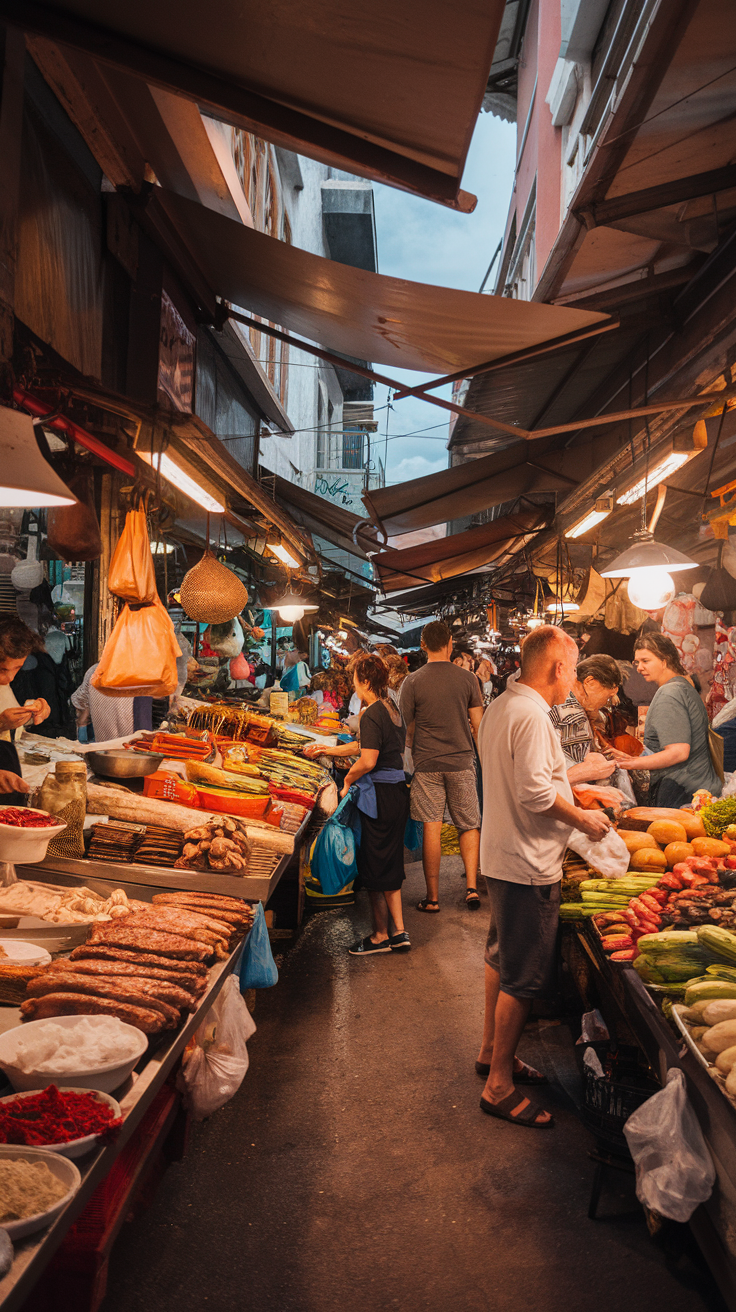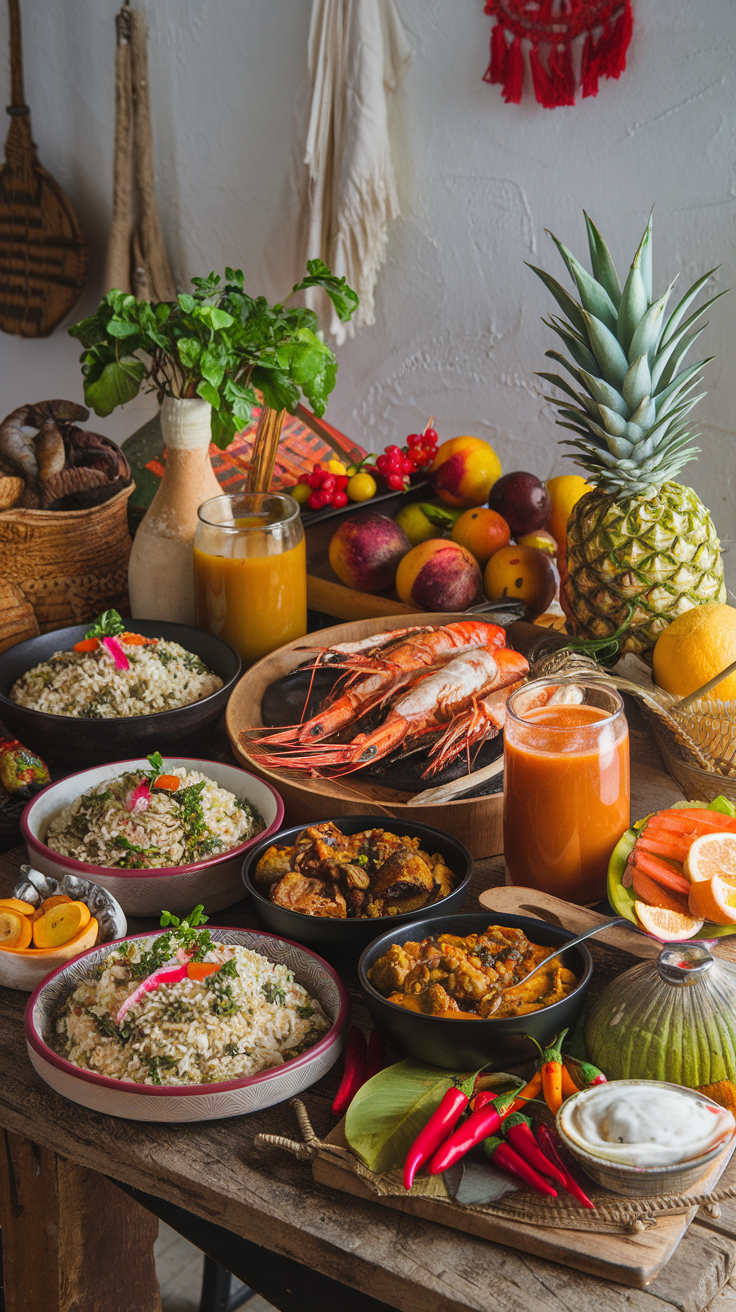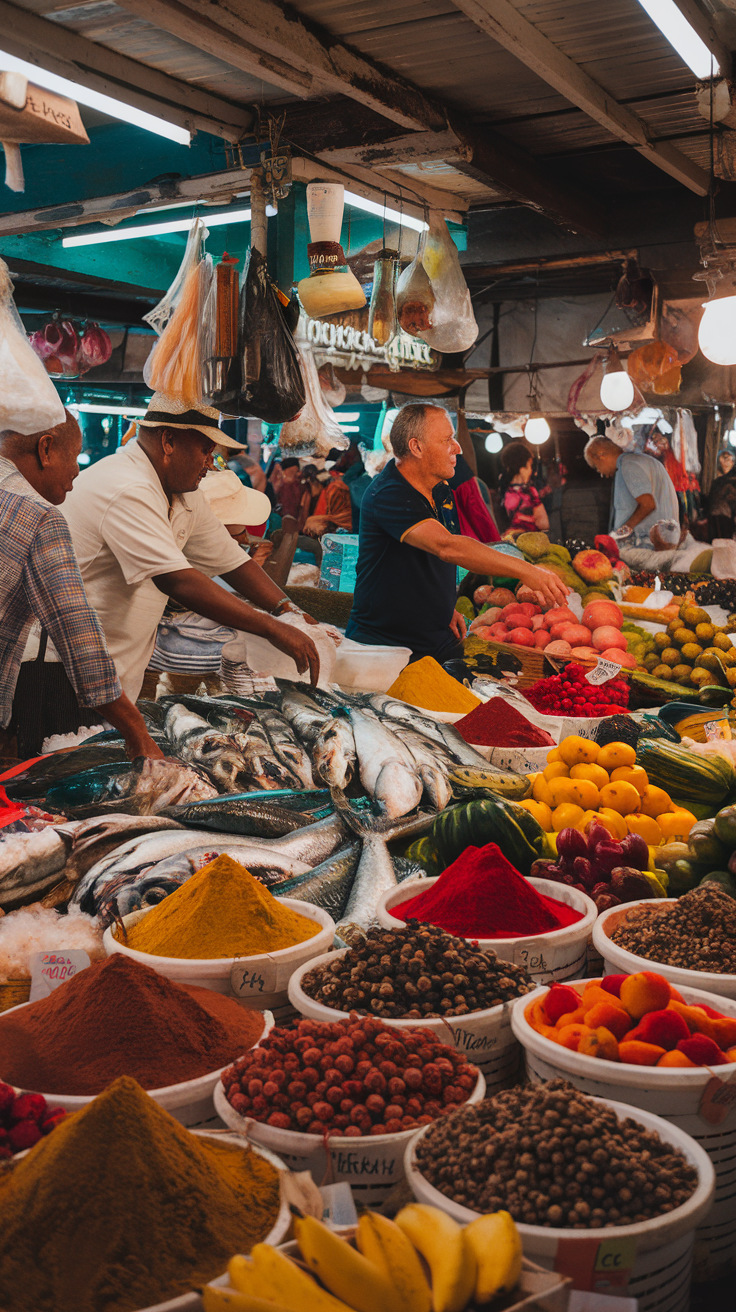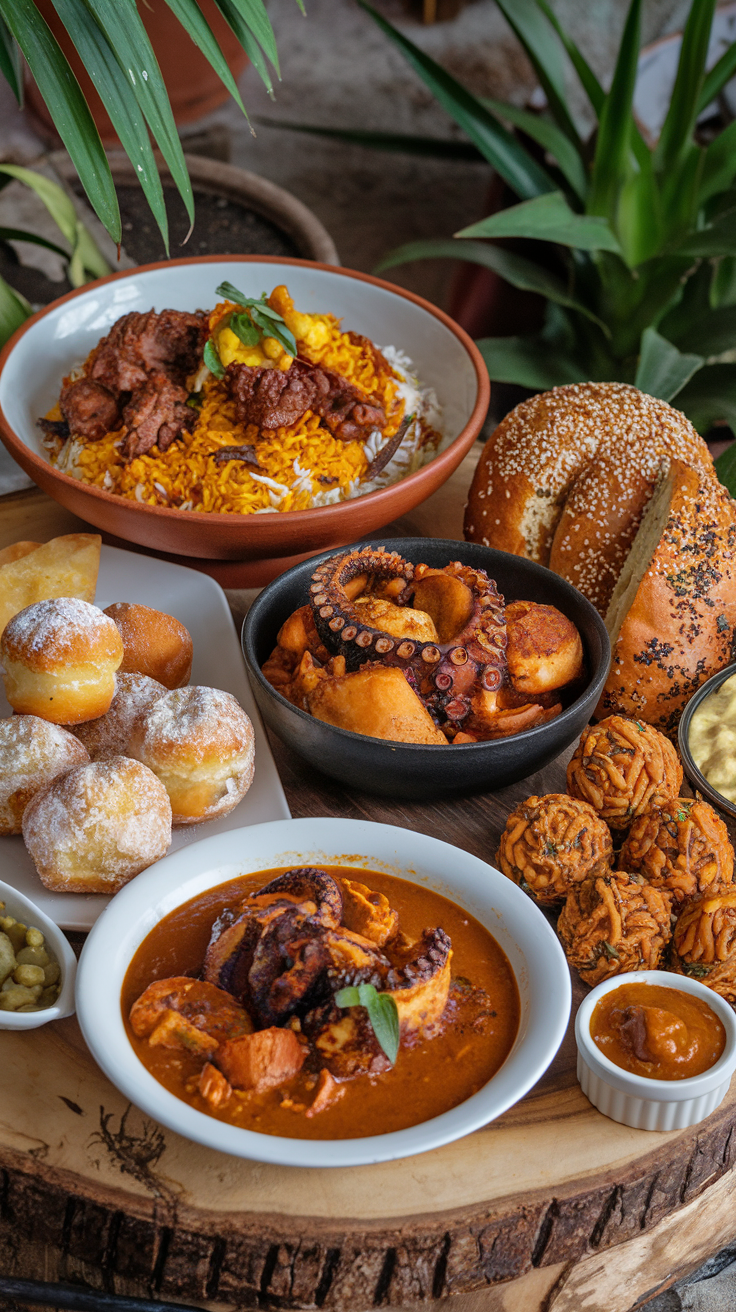Imagine strolling through narrow, winding alleys filled with the intoxicating aroma of spices, the sizzle of grilling meats, and the vibrant chatter of locals and tourists alike. Welcome to the enchanting world of Zanzibar food markets, where centuries of history blend with a kaleidoscope of flavors to create a culinary experience like no other.

Zanzibar, often called the Spice Island, is a treasure trove of gastronomic delights. Its food markets are not just places to buy ingredients or grab a quick bite; they’re living museums of the island’s rich cultural heritage. In this article, we’ll take you on a mouthwatering journey through the best food markets in Zanzibar, revealing the must-try dishes, insider tips, and the stories behind this unique culinary landscape.
Discovering the Rich Tapestry of Food in Zanzibar

Before we dive into the specific markets, let’s take a moment to appreciate the incredible diversity of Zanzibar food. The island’s cuisine is a vibrant fusion of African, Arabian, and Indian influences, reflecting its long history as a trading hub. This unique blend results in dishes that are both familiar and exotic, comforting and exciting.
From fragrant rice pilafs to tangy tamarind juices, the food in Zanzibar offers a symphony of flavors that will tantalize your taste buds. Whether you’re a seasoned foodie or a curious traveler, the island’s markets promise an unforgettable culinary adventure.
Unveiling the Secrets of Zanzibar’s Most Famous Market
1. Forodhani Gardens: The Heart of Zanzibar’s Night Food Scene

As the sun dips below the horizon, painting the sky in hues of orange and pink, Forodhani Gardens transforms into a bustling food market. Located in the heart of Stone Town, this nightly spectacle is a must-visit for anyone wanting to experience the true essence of Zanzibar’s street food culture.
What to expect:
- Rows of stalls offering a wide array of local delicacies
- The intoxicating aroma of grilled seafood and spices
- A lively atmosphere with locals and tourists mingling
Must-try dishes:
- Zanzibar Pizza: Don’t let the name fool you; this is a unique stuffed pancake filled with your choice of meat, vegetables, or even Nutella for a sweet twist.
- Urojo (Zanzibar Mix): A tangy soup made with potato balls, crispy fritters, and a spicy mango and tamarind sauce.
- Mishkaki: Tender, marinated meat skewers grilled to perfection.
Insider tip: Arrive early (around 6 PM) to watch the vendors set up and get the freshest picks of the day.
2. Darajani Bazaar: A 24-Hour Culinary Adventure

For those who want to dive deep into the local food scene, Darajani Bazaar is an absolute must-visit. This sprawling market operates around the clock, offering a glimpse into the daily life and culinary habits of Zanzibaris.
What to expect:
- A sensory overload of sights, sounds, and smells
- Fresh produce, spices, and seafood in abundance
- The hustle and bustle of locals going about their daily shopping
Highlights:
- The fish market section, where you can see the catch of the day being auctioned off
- Spice stalls offering a rainbow of aromatic powders and seeds
- Fresh fruit vendors selling exotic tropical delights
Insider tip: Visit in the early morning to see the market at its most active and to get the best selection of fresh produce.
Hidden Gems: Lesser-Known Food Markets in Zanzibar
While Forodhani Gardens and Darajani Bazaar are the stars of the show, Zanzibar has several other markets that are worth exploring for a more off-the-beaten-path experience.
3. Mkunazini Market
Tucked away in the heart of Stone Town, Mkunazini Market offers a more local experience away from the tourist crowds.
What to try:
- Fresh coconut water straight from the source
- Local varieties of bananas and mangoes
- Homemade pickles and preserves
4. Mangapwani Village Market
For those willing to venture out of Stone Town, the weekly market in Mangapwani village offers a glimpse into rural Zanzibari life.
Highlights:
- Traditional cassava-based dishes
- Locally grown spices and herbs
- Handmade crafts and textiles
Must-Try Foods at Zanzibar’s Markets

Each Zanzibar market tells a story of the island’s culinary heritage, offering visitors a sensory journey through local ingredients and cooking traditions. Here are some dishes you absolutely must try:
- Biryani: A fragrant rice dish infused with spices and your choice of meat or vegetables.
- Octopus Curry: Tender pieces of octopus in a rich, spicy coconut sauce.
- Mandazi: Sweet, fluffy doughnuts often enjoyed with coffee or tea.
- Mkate wa Ufuta: A sesame bread that’s crispy on the outside and soft on the inside.
- Kachori: Spiced lentil balls with a crispy exterior, perfect for snacking.
The Cultural and Historical Significance of Zanzibar’s Food Markets
Zanzibar’s food markets are more than just places to eat; they’re living history books. The island’s position as a major spice trading hub has significantly influenced its culinary landscape, with each dish telling a story of cultural exchange and adaptation.
For centuries, these markets have been meeting points for different cultures, where Arab traders, Indian settlers, and African locals exchanged not just goods, but recipes and cooking techniques. This rich history is evident in every bite of Zanzibari cuisine, from the use of coconut in curries (a nod to Indian influence) to the prevalence of grilled meats (a staple in many African cuisines).
Tips for Navigating and Experiencing Zanzibar’s Food Markets
To make the most of your culinary adventure in Zanzibar’s markets, keep these tips in mind:
- Dress modestly: Zanzibar is predominantly Muslim, so respect local customs by covering your shoulders and knees.
- Bring small bills: Many vendors may not have change for large denominations.
- Practice basic Swahili: A few words like “Jambo” (hello) and “Asante” (thank you) go a long way.
- Stay hydrated: The markets can get hot, so carry water with you.
- Trust your instincts: Stick to stalls that look clean and have a high turnover of customers.
Embarking on a Zanzibar Food Tour: Tastes and Traditions
Taking a Zanzibar food tour is the perfect way to immerse yourself in the island’s culinary culture and discover hidden gastronomic gems. Many tour operators offer guided walks through the markets, combining food tastings with historical and cultural insights.
What to expect on a food tour:
- Visits to both famous and off-the-beaten-path food spots
- Tastings of a wide variety of local dishes and ingredients
- Stories about the history and cultural significance of Zanzibari cuisine
- Tips on how to recreate some of the flavors back home
Whether you’re a solo traveler or part of a group, a guided food tour can provide a deeper understanding of Zanzibar’s culinary landscape and ensure you don’t miss any of the island’s gastronomic treasures.
Conclusion: A Culinary Journey to Remember
Zanzibar’s food markets are a testament to the island’s rich history and vibrant culture. From the bustling night market at Forodhani Gardens to the 24-hour sensory experience of Darajani Bazaar, each market offers a unique window into the soul of Zanzibar.
As you wander through these markets, sampling everything from crispy Zanzibar pizza to aromatic biryani, you’re not just eating; you’re participating in centuries of culinary tradition. The flavors, aromas, and experiences you’ll encounter in Zanzibar’s food markets will linger in your memory long after you’ve left the island’s shores.
So, pack your appetite and your sense of adventure, and get ready to explore the culinary wonders of Zanzibar’s food markets. Your taste buds will thank you for the journey.
Zanzibar’s cuisine is influenced by African, Arab, Indian, and European flavors. Traditional dishes include Pilau (spiced rice), Urojo (Zanzibar mix soup), Octopus Curry, and Zanzibar Pizza (stuffed fried dough).
Some of the most popular dishes include Biryani, Mandazi (fried dough), Mishkaki (grilled meat skewers), and fresh seafood like lobster and prawns.
Must-try local dishes include Chapati, Samaki wa Kupaka (fish in coconut sauce), and Kaimati (sweet fried dumplings). Don’t miss the famous Zanzibar street food at Forodhani Gardens in Stone Town.
Avoid unwashed raw fruits and vegetables, undercooked seafood, and street food from unhygienic stalls to prevent foodborne illnesses. Always drink bottled or filtered water.
Zanzibar is known for its fresh seafood, including grilled octopus, prawns, tuna, barracuda, calamari, and lobster. Seafood curries cooked in coconut milk are especially popular.
Yes, Lebanese passport holders need a visa to enter Zanzibar. They can obtain a visa on arrival ($50) or apply for an e-visa online before traveling.
Zanzibar’s famous spice blend includes cloves, cinnamon, cardamom, black pepper, nutmeg, ginger, and turmeric. These spices are commonly used in local dishes.
A classic Zanzibar Fish Curry includes fresh fish, coconut milk, tomatoes, garlic, ginger, turmeric, and coriander. Simmer everything together for a rich, flavorful dish.
You can find Zanzibar recipes in local cookbooks, blogs, and cooking classes in Stone Town. Many restaurants also offer traditional cooking experiences for visitors.






Pingback: Mombasa Holidays: The Ultimate Guide to Budget Travel - Bwire Travel